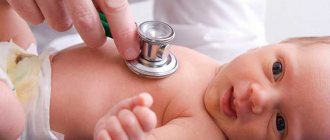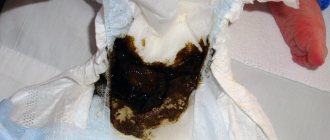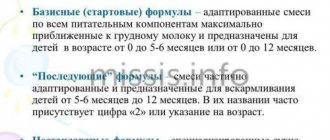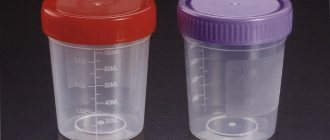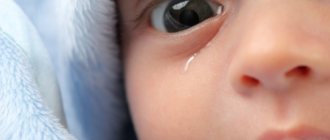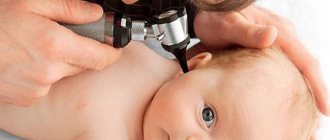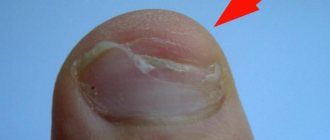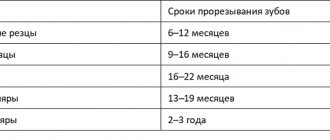ARVI is an acute respiratory viral infection that has a destructive effect on the respiratory system and the mucous membrane of the nasopharynx. ARVI in a newborn is transmitted by airborne droplets and affects babies with weak immunity.
But most often, newborns are exposed to the disease. This occurs as a result of the baby’s lack of immunity and antibodies that stop the destructive effects of the virus.
The symptoms of the disease can easily be mistaken for a common cold, because a newborn is not able to indicate where it hurts, why there is a runny nose, and what kind of cough is tormenting. According to medical statistics, approximately 30% of children are attacked by the disease in the first days of life. It is important to know what ARVI is, what symptoms and causes of the disease you should pay attention to, and how to get rid of a serious virus without harm to the child.
ARVI - what is it?
The disease develops quickly; on days 3-5 the child develops a high fever. At the initial stage, ARVI is very difficult to identify, because the symptoms are similar to a common cold. ARVI is a viral infection transmitted by airborne droplets and provoked by harmful bacteria that affect the respiratory tract. A special feature of the disease is the lack of seasonality (you can become infected at any time of the year), but most often the disease affects newborns in winter and autumn.
A viral infection poses a direct threat to the health of the baby, since the child has not yet developed immunity. After a long stage of treatment, there is a need to carry out preventive work to restore the child’s body’s resistance to respiratory viruses.
What is ARVI, who is sick?
Parents often ask: ARVI in infants, what is it? ARVI is an acute viral infection associated with damage to the respiratory tract and transmitted by airborne droplets. The illness lasts about a week and is treated with antiviral drugs. Most often they get sick:
- children under one year old;
- children from 2.5 to 7 years old attending kindergarten;
- aged people;
- people with weak immune systems.
ARVI and influenza should not be confused; these diseases have different symptoms and different treatments.
Doctors identify a separate category of frequently ill children
Causes of ARVI infection in a newborn
As a rule, premature babies, due to their weak bodies, are exposed to the aggressive effects of the virus. Even being in the same room with a person who has recently had an acute respiratory viral infection can trigger the development of the disease. In addition, there are a number of generally accepted causes of a viral infection in a newborn. Many factors can provoke ARVI in a child, from the lack of developed immunity to artificial feeding.
Together with mother's milk, the child receives the necessary substances and vitamins that have a beneficial effect on the development of resistance to colds and viral diseases. While being bottle-fed, the newborn experiences a deficiency of antibodies transmitted through breast milk. This is the first and most important cause of ARVI infection.
Infectiousness of the pathogen virus
ARVI is a whole group of diseases that affect the children's body in their own way. It was previously noted that the virus is transmitted by airborne droplets. The peculiarity of ARVI lies in the incredible survivability of harmful microorganisms. They do not die in hot or cold climates.
An adult needs a high concentration of viral microorganisms in the air for infection to occur. A newborn only needs contact with the clothes of a person who has been outside to get an unpleasant disease.
Weak immunity of the newborn
During the first 3-4 days, the baby’s health is extremely unstable, because immediately after birth the child has no immunity. The newborn receives resistance to viral infections through breast milk, which contains the appropriate antibodies. If you skip breastfeeding and give your child only artificial formula, this can trigger the development of ARVI.
Weakening of the immune system as a result of several colds in a row is another reason for contracting a respiratory virus. A cough and runny nose that becomes chronic indicate the presence of a more serious illness than a cold.
Visiting crowded places
Specific factors: Crowded places are a direct source of viral infection. According to medical statistics compiled by pediatricians, the chance of a newborn getting ARVI in a crowd is 45%. A small child will only need short-term contact with an infected person to receive harmful microorganisms.
The development of ARVI is caused by hypothermia or being outside for too long in the autumn or winter. Respiratory viruses can be caught at any time of the year, but from the beginning of October to mid-January, the risk factor for infection is extremely high.
The presence of chronic or autoimmune diseases also provokes the development of ARVI in a baby. Congenital pathologies do not allow the development of full immunity, as a result of which the baby does not have antibodies capable of resisting viral infection.
Prevention of ARVI in a newborn
You should not wait for the moment when your baby develops a viral disease. Prevention of ARVI in infants helps solve several problems at once . By taking preventive measures, parents can minimize the risk of their child getting sick. In addition to this, the body becomes resistant to re-infection. In order to achieve this, it is enough to follow simple recommendations from doctors.
First of all, it is necessary to minimize the number of contacts with people who suffer from viral colds. It should be remembered that a child can become infected not only when he is on the street or on a trip, but also at home, because the young mother may have people who suffer from a viral illness as guests.
The room should be ventilated on a regular basis. Fresh air is beneficial for humans in any case. Fresh air flows entering the room where the child is located help lower the temperature.
Symptoms of ARVI in children
The danger of the disease is that the incubation period is asymptomatic. The formation of ARVI occurs within 12-36 hours from the moment of contact with the virus. This is followed by the appearance of characteristic symptoms indicating the presence of infection in the newborn’s body.
- Basic
Initially, symptoms appear on the mucous membrane of the nasopharynx. A dry cough occurs, sometimes to the point of gagging. The throat turns red, the nasal mucosa undergoes an allergic reaction, and a runny nose occurs.
During the development of ARVI, rhinitis, pharyngitis and laryngitis appear. This disease can be called complications into which a respiratory virus flows. It is worth clarifying that without an infectious lesion, pharyngitis and laryngitis do not occur.
After 3-5 days of illness, the child’s temperature begins to rise, reaching 39 degrees. The problem is that a newborn should not be given strong antipyretics, since their interaction with a weakened body is unknown.
- Specific
Specific symptoms that appear during ARVI include:
- severe chills;
- periodic fever;
- lack of appetite (the child refuses to take breast milk or formula);
- short-term migraines are possible;
- severe malaise;
- sweating;
- disturbing dream.
Specific symptoms allow the pediatrician to promptly identify ARVI and prescribe appropriate treatment. If a runny nose or slight cough appears, you should immediately visit the hospital with your newborn for diagnosis.
Caring for a baby during ARVI
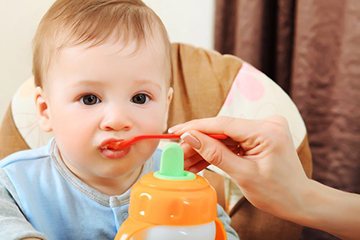
First of all, you need to organize comfortable conditions for the child.
Ventilate the room, dim excess lighting, keep strangers away. Walking and swimming are not recommended during the period of illness.
The diet should be varied, enriched with vitamins and proteins.
If the baby is still fully breastfed, then the mother needs to more carefully monitor her diet and drink enough fluids so that the baby can be put to the breast at any time.
During the period of illness, appetite is reduced and the moments when the child eats become more significant. Additionally, the child should be given something to drink. An increased drinking load activates the passage of blood in the kidneys, and accordingly accelerates the elimination of toxins and a decrease in temperature. If your baby sweats a lot, you can lightly blot his skin with a warm towel.
During the period without fever and on days 3-5 of illness, as a rule, children become more active and their appetite is restored.
During this period, parents need to be especially vigilant, continue to follow a diet and sleep schedule, and monitor the temperature.
Avoid overheating or hypothermia of the baby.
ARVI is a common problem in children from a very early age. Although it has been proven that breastfed babies are less susceptible to diseases, their immunity cannot be guaranteed to protect against infection. And in the event of a viral disease, parents must competently navigate and provide assistance to their child before the doctor arrives.
Types of ARVI
Each type of pathology is characterized by a unique effect on the child’s body, the duration of the incubation period, the clinical picture and the course of the disease. It is important to know what types of acute respiratory viral infections occur in a newborn in order to promptly begin treatment for a specific disease.
Flu
Typical symptoms of influenza include high fever, extreme weakness and inactivity of the child, as well as a complete lack of appetite. Your baby may swallow frequently due to excess saliva in the mouth. On the 3rd day, after the end of the incubation period, the newborn’s throat begins to turn red and wheezing sounds appear.
Parainfluenza
A mild form of influenza. Parainfluenza can be provoked by laryngostenosis, as a result of swelling on the vocal cords. The child's voice changes and there is wheezing in the chest. There is no cough or runny nose.
Adenovirus infection
The popular name for ARVI is intestinal flu; accordingly, symptoms of damage to the gastrointestinal tract appear. Adenovirus infection is accompanied by symptoms characteristic of poisoning: frequent vomiting, loose stools, and flatulence. Before starting treatment for the disease, problems with the gastrointestinal tract must be eliminated.
Rheo- and rhinovirus infection
Rhinovirus infection is characterized by damage to the mucous membrane of the nasopharynx. In the acute period, there is an excessive runny nose, increased lacrimation of the eyes, and a chest cough is possible. The peculiarity is that during rheo- and rhinovirus infections, the body temperature does not rise.
Respiratory syncytial virus (RS virus) infection
The RS-viral form of ARVI is very difficult for newborn children, as it is accompanied by complications in the form of pneumonia or bronchitis. It should be clarified that untreated respiratory syncytial infection provokes the development of chronic diseases of the respiratory tract.
Among the characteristic symptoms are a chest cough, pulmonary wheezing and a temperature of 37.2 degrees, at which the child’s body does not resist harmful bacteria.
Enterovirus infection
Rhinitis, which is both a complication and a formative factor, can provoke an enterovirus infection. The onset of the disease is subacute, the incubation period is asymptomatic. Body temperature does not tend to rise or stay within 37 degrees.
Once the form of ARVI has been established, direct treatment of the disease can begin.
How to protect the baby if the mother is sick?
The mother is in constant contact with the baby, so her illness is a serious threat to the child’s health. Many women stop breastfeeding during the flu and ARVI, believing that in this way they will more effectively protect the baby. This opinion is wrong. Breast milk contains antibodies and other beneficial substances that enhance immune defense. Problems with lactation may occur. If you do not put your baby to the breast for a week or two, milk production decreases and its composition deteriorates.
The first symptoms of ARVI in an infant usually appear 1-2 days after contact with a carrier of the infection, so protective measures must be taken immediately. Mom will be helped by wearing a special medical mask. It allows you to delay the spread of microbes by airborne droplets. The main thing is not to forget to change the mask for a new one every 2 hours.
Another effective way to protect your baby from infection if his parents are sick is to not put him to bed with you. Pathogenic microorganisms persist on bedding for a long time.
It is equally important to observe the rules of personal hygiene, use separate utensils and towels. Before each contact with the baby, you must wash your hands thoroughly.
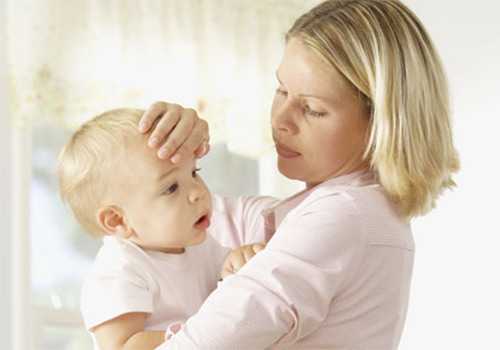
Treatment of ARVI in infants
You can treat ARVI after visiting your local pediatrician. It is strictly forbidden to give medications to a child on your own without knowing the child’s body’s reaction to potent drugs. Unfortunately, the initiative of concerned parents often leads to unpleasant consequences, so you need to know a number of recommendations on how to behave when ARVI manifests itself.
General recommendations
At the first manifestation of characteristic symptoms (runny nose, high temperature, redness of the throat), the following actions must be taken:
- exclude artificial nutrition and breastfeed;
- ensure sanitary conditions in the children's room. Carry out wet cleaning with disinfectants and antiseptics, after ventilating it;
- during the illness, avoid walking in the fresh air;
- do not bathe the child. Use wet wipes to wipe the genitals to prevent prickly heat;
- If the baby’s general condition worsens, immediately call your local pediatrician.
Important : do not rush with antipyretic drugs. At a temperature of 38 degrees, the child’s body begins to produce antibodies that resist infection. All medications are given only with the permission of the pediatrician.
This video gives several useful recommendations to parents on how to treat ARVI in a child.
Folk remedies
Traditional medicine has repeatedly had an effective effect where traditional therapy was powerless. Let's look at a few good recipes to help with ARVI:
Vitaminized tea. To prepare you will need a little chamomile (30-50 grams), linden and lemongrass. Mix all ingredients, place in a mug and add boiled water. Wait until it cools completely. Give one teaspoon to the child every hour and a half. The product helps with adenovirus and enterovirus infections.
Infusion of lemon and honey. A few slices of lemon, 50 grams of honey and 20 grams of ginger root should be poured with boiled water and left for 2-3 hours. Give a teaspoon every hour. The product stimulates the development of natural immunity in the baby and helps cope with acute illness. Traditional medicine is an effective remedy against ARVI, but it is recommended to first consult with your local pediatrician so as not to harm the child.
Drug treatment of a newborn
Drug therapy is a proven way to treat a respiratory virus. It is important to remember that all medications are prescribed by the attending physician, depending on the individual characteristics of the baby’s body.
Treatment with medications is divided into two types: symptomatic and etiotropic. The first type is necessary to eliminate the disease, the second is to correct the immune system and develop strong resistance, as well as to prevent the recurrence of ARVI.
For symptomatic drug treatment, the following drugs are used:
Means for lowering temperature. Young children are given Panandol in syrup form. A child under 3 years of age is prescribed one measuring spoon. 2 doses of the drug are allowed per day;
For severe runny nose, nasal rinsing solutions are used. The pediatrician prescribes “Salin” not only to cleanse the nasal tract, but also to stimulate the release of snot;
Drops for vasoconstriction. Only “Protargol” is allowed to be used. The drug is sold exclusively with a prescription from a pediatrician. You can use the drops for no longer than a week, otherwise addiction may occur;
Mucolytic drugs. Helps calm anxious bronchi and eliminate cough. “Mukaltin” is suitable for small children. A quarter of a tablet should be given to a child for a severe dry cough.
This is only the first part of drug treatment. This is followed by etiotropic drug therapy:
Antiviral drugs. Children are prescribed Acyclovir or its analogues. The first week you need to take one tablet three times a day, then wait until you feel better. If necessary, repeat the therapeutic course.
Stabilizing drugs. Children are prescribed Fenistil to prevent the development of an allergic reaction. The dosage is calculated based on body weight.
Immunostimulating drugs are prescribed by a pediatrician only when absolutely necessary. The child’s body must independently develop immunity to respiratory viruses. Artificial resistance will only partially protect the child from the influence of infection.
Treatment of ARVI in infants
The pediatrician will tell you in detail about how to treat ARVI in an infant, and you should contact him if characteristic symptoms are detected.
If the infection in newborns does not cause complications, then treatment includes:
- Rinse the nasal passages with isotonic saline solutions.
- Using special patches that are glued to clothing. They are impregnated with compositions based on medicinal herbs, which help ease breathing and also help with coughing.
- Cleansing the nose. To remove mucous masses, you can use aspirators or cotton swabs;
- Use antipyretics if the temperature rises to 38 degrees or higher. In children under 1 year of age, when treating ARVI, only drugs in the form of rectal suppositories or syrups can be used.
- Taking bronchodilators and mucolytic drugs. Such remedies are necessary for severe coughs. You can give drugs from these medicinal groups if the child’s age is 6 months or more.
- Rubbing the chest and back area with animal fat. This will help cope with coughing attacks in your baby. You should not rub at high temperatures, as this procedure will raise the temperature even higher.
- Staying hydrated will prevent dehydration, which occurs with elevated body temperature. If the baby refuses to drink, you need to give him a teaspoon of liquid every quarter of an hour.
- Proper care. In the room in which the sick baby is located, the air should be fresh, so the room should be ventilated regularly. The rules for caring for a sick newborn require breastfeeding: it is breast milk that contributes to the formation and strengthening of the baby’s immunity. You need to give food when the child wants, you should not force feed him.
Key Features

At the initial stage of ARVI, if the baby has a cough, you can make special baths and bathe the child in them. A decoction of chamomile, calendula, yarrow and sage, taken in equal parts (for the specified amount of raw materials - a liter of boiling water), is added to warm water. The broth is infused for two hours and then poured into a bath filled with water.
How to treat ARVI in an infant if the disease is severe? In this case, the doctor prescribes immunomodulators - drugs containing human interferons. These medications increase the body's resistance to infections. For children, immunomodulators are available in the form of rectal suppositories or drops for oral administration.
In case of severe intoxication, sorbents are prescribed to bind toxins and speed up their elimination from the body.
If ARVI is complicated by a bacterial infection, the doctor prescribes antibiotics.
All treatment methods are used only after consultation with a pediatrician.
With proper treatment and following all the doctor’s recommendations, the baby will recover in 5-7 days, if the course of ARVI was not complicated.
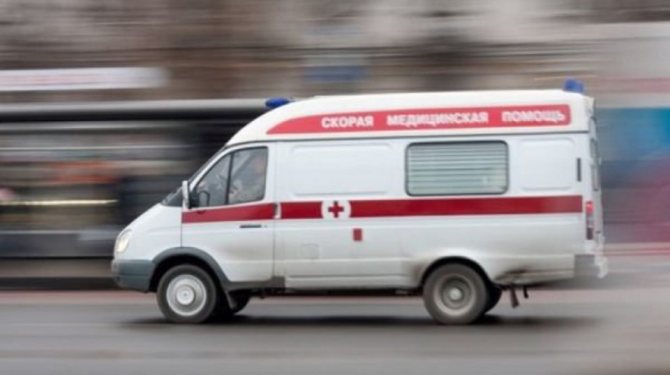
During the treatment period, it is necessary to carefully monitor the condition of the baby. You should immediately call an ambulance in the following cases:
- the elevated temperature persists for five days and does not decrease;
- the child has a barking cough and hoarseness, noisy, difficult breathing;
- a rash was found on the skin of the legs, abdomen, buttocks;
- high temperature does not decrease within an hour after using an antipyretic drug;
- the appearance of symptoms of dehydration. This is expressed in the absence of urine for more than 6 hours, crying without the release of tears;
- the child loses consciousness and has convulsions.

Such symptoms indicate serious complications, so action must be taken immediately.
In what cases is urgent medical attention needed?
An acute respiratory viral infection affects the respiratory tract of a newborn, causing problems with the mucous membrane of the lungs and bronchi. Increased swelling is observed, the child cannot inhale or exhale independently.
In addition, there are other situations in which urgent medical attention is needed:
- frequent dry cough smoothly turning into a wet type;
- breathing problems;
- the child has shortness of breath with the slightest movement;
- high or low blood pressure;
- short-term loss of consciousness;
- the occurrence of a severe allergic reaction.
Particular attention should be paid to the last problem. An allergic reaction can occur not only against the background of acute respiratory viral infection, but also due to individual intolerance to the components of the drug. With prolonged use of an inappropriate drug, Quincke's edema may develop. In any of the above situations, you should urgently call a doctor.
Causes of ARVI in infants
In the first 6 months of life, the baby’s body is protected by the mother’s antibodies, which were transmitted to him in utero.
Breastfeeding also helps strengthen immunity, because with milk the baby continues to receive protection factors against pathogenic microbes. Unfortunately, an infant’s antiviral immunity is weak and it is quite possible for him to get ARVI. Predisposing factors to the development of acute viral infection in infants include:
- Weak local immunity (vulnerability and tendency to dry out mucous membranes, incomplete development of the lymphoid pharyngeal ring);
- Having contact with young preschool children or adults with ARVI;
- Prematurity and/or underweight;
- Artificial feeding, especially with unadapted formulas;
- Congenital diseases;
- Frequent visits to places with large crowds of people (clinics, shopping centers);
- Failure to maintain the optimal microclimate in the room where the child is (dry air, overheating);
- Insufficient exposure to fresh air;
- Rickets and/or iron deficiency anemia.
The most common immediate causes of ARVI in infancy are viruses:
- Adenovirus;
- Parainfluenza;
- Flu;
- Enterovirus (ECHO and Coxsackie);
- Rhinovirus;
- Human herpes simplex;
- Respiratory syncytial infection.
Having a predisposition to infection, when encountering a virus, the baby’s likelihood of getting sick increases many times over.
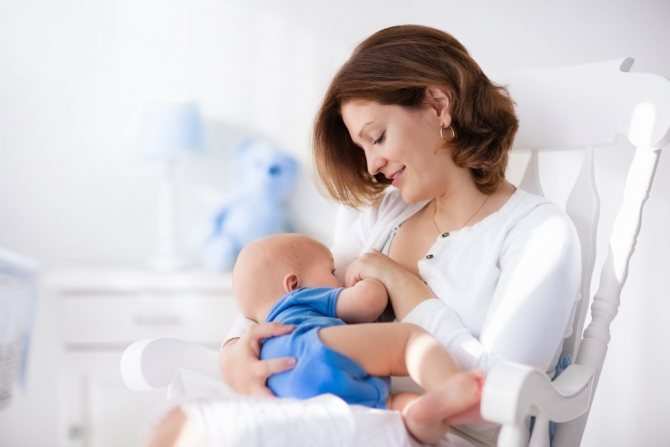
Symptoms of ARVI in infants
Considering the variety of pathogens, we should expect that the clinical picture of ARVI in a baby will also be multifaceted. So, with a viral infection in an infant, the following symptoms are identified:
- Deterioration in general health (the child is lethargic, capricious, refuses breastfeeding and other food);
- Increase in body temperature, usually in the evening, to high numbers;
- Nasal congestion, which may be accompanied by the discharge of clear mucus;
- The appearance of inflammation of the mucous membranes of the eyes - conjunctivitis, mouth - stomatitis;
- The cough is dry at first, then becomes wet, which is often accompanied by reflex vomiting;
- Sometimes a pinpoint or papular rash occurs;
- Sore throat, manifested by anxiety, refusal to eat and drink;
- Regurgitation, diarrhea.
The body of a small child reacts violently to the penetration of an infectious agent and sometimes this reaction can be unpredictable. Due to the fact that the baby cannot yet perform conscious actions (blow his nose, cough up phlegm) and communicate that he is worried, complications very often develop.
For any abnormality in the condition of the baby, consultation with a doctor is mandatory.
.
It is important to know the conditions in which you need to urgently call an ambulance. If conditions such as:
- The high temperature lasts for more than 5 days without a tendency to decline;
- Barking cough, hoarseness and noisy breathing;
- The temperature does not decrease 40 minutes after taking the antipyretic;
- Signs of dehydration appeared (dry skin and mucous membranes, retraction of the fontanelle, lack of urine for more than 6 hours, crying without tears);
- Convulsions, loss of consciousness, severe weakness in the limbs;
- Rash, especially star-shaped on the abdomen, buttocks, legs.
Any of these symptoms may be a sign of a dangerous disease, so in such situations, delay is impossible.
How long does a child’s fever last for ARVI?
The first manifestations of high temperature are present 3-5 days after the incubation period. Depending on the type of ARVI, a child’s fever can last from 5 to 8 days. If this condition continues longer, an urgent examination by a pediatrician is required.
Temperature is a protective mechanism of the newborn’s body, allowing it to independently produce antibodies to resist harmful bacteria. Thus, initial immunity is formed and the baby, in the future, can independently fight respiratory viruses.
But a high temperature that lasts for a long time indicates that the newborn’s body cannot cope with ARVI on its own, therefore, there is a need to use immunostimulating drugs.
How to treat ARVI in an infant?
When an infant is diagnosed with ARVI, treatment of the sick child should begin as soon as possible. If this is not done, the course of the disease may be complicated by the occurrence of inflammatory processes in the ear, lungs, and bronchi. Often with ARVI, inflammation appears in the larynx. This is due to the fact that children under 1 year of age have anatomical features when bouts of severe coughing do not allow the child to breathe fully.
Many experts perceive a viral disease that occurs in a child in the first 6 months of life as positive stress. In their opinion, this allows the immune system to adapt to viruses and subsequently successfully fight them when infections occur.
Features of ARVI therapy in children from 6 months to 1 year
The likelihood of ARVI in children increases between the ages of 6 months and 1 year. In this case, therapy should include the use of drugs prescribed by a doctor. However, the effectiveness of the prescribed drugs is maximum if they are used in the first two days after the child is infected.
You should be aware that in infants the incubation period lasts up to 3 days and symptoms characteristic of viral diseases appear gradually.
ARVI in a 6-month-old baby: what should young mothers pay attention to?
The famous doctor Komarovsky, speaking about the treatment of ARVI, draws the attention of parents to the following points:
- to vaccinate children with a viral disease. Vaccinations that are scheduled must be postponed for a month. After a disease suffered by a small child, the immune system is in a weakened state, so vaccinations will be an additional blow, which will cause certain consequences.
- Dr. Komarovsky advises not to contact people who have symptoms of a viral disease. You should avoid communicating with infected people for 2 months to avoid re-infection in your child.
- You should make a rule to regularly ventilate the room in which the baby spends most of the time. The temperature in the room should be at 22 degrees. The room must be ventilated at least 5 times a day, regardless of the weather outside.
- Dr. Komarovsky also does not advise increasing the frequency of feedings in case of viral diseases. When a child gets rid of ARVI, the body is in a weakened state as a result of the illness, so the baby’s appetite may be weak . Mother's milk is enough for a child to fully recover. Breastfeeding should be carried out according to the established regimen.
- Don't go overboard with your baby's clothes. The child must be dressed in a wardrobe that allows him to breathe normally. It is forbidden to wrap the child in warm clothes. Sweat is moisture that will lead to weight loss after the baby recovers from illness.
- Dr. Komarovsky does not recommend using throat sprays in the first 6 months of life to treat colds. He knows of a large number of cases where, when using such drugs, a child developed laryngeal spasms and suffocation.
Complications after ARVI in a child
Unfortunately, an acute respiratory viral infection does not go away without leaving a trace. Newborns may have specific and nonspecific complications.
Specific
The first category includes the following problems:
- Febrile seizures. From time to time, the baby will be bothered by spasms in the joints of the lower and upper extremities. The phenomenon is short-term and goes away after the symptoms of ARVI are completely eliminated;
- Reye's syndrome;
- Chronical bronchitis. Against the background of influenza or parainfluenza, a specific complication develops in the form of damage to the bronchial system. For 3-5 months, the child will be bothered by a dry cough without sputum. Complex therapy is required to eliminate this problem;
- Deviations in heart rhythm. Among all complications, tachycardia or bradycardia is clearly manifested, especially in premature infants;
- Hemolytic-uremic syndrome.
All complications of a specific type can be corrected and treated. Often, these manifestations occur on a short-term basis.
Nonspecific
Let's consider nonspecific complications called an acute form of a respiratory virus:
- Bronchial asthma. Against the background of a developed ARVI, problems with the respiratory system arise, which in the future become chronic.
- Tuberculosis. Respiratory viruses cause significant damage to the lungs, resulting in the formation of dark spots on the paired organs.
- Problems with the urinary tract.
Nonspecific manifestations are much more difficult to cure. To prevent this situation, it is recommended to carry out timely diagnosis, examination by a pediatrician and treatment.
Prevention of ARVI
To reduce the chance of contracting ARVI, it is necessary to carry out appropriate preventive measures immediately from birth. To do this, just follow the following recommendations:
The baby needs to be breastfed so that the newborn receives the appropriate antibodies through mother's milk. Ventilate the children's room daily, after moving the baby to another part of the room. If one of the parents gets sick, quarantine conditions must be ensured: minimum contact with the child, daily disinfection of the house. Isolate the patient if possible.
Clean the premises with antiseptic agents. Carry out all prescribed injections. Compliance with all the rules will ensure proper prevention of the disease, and will also reduce the chance of infection by 45%.
